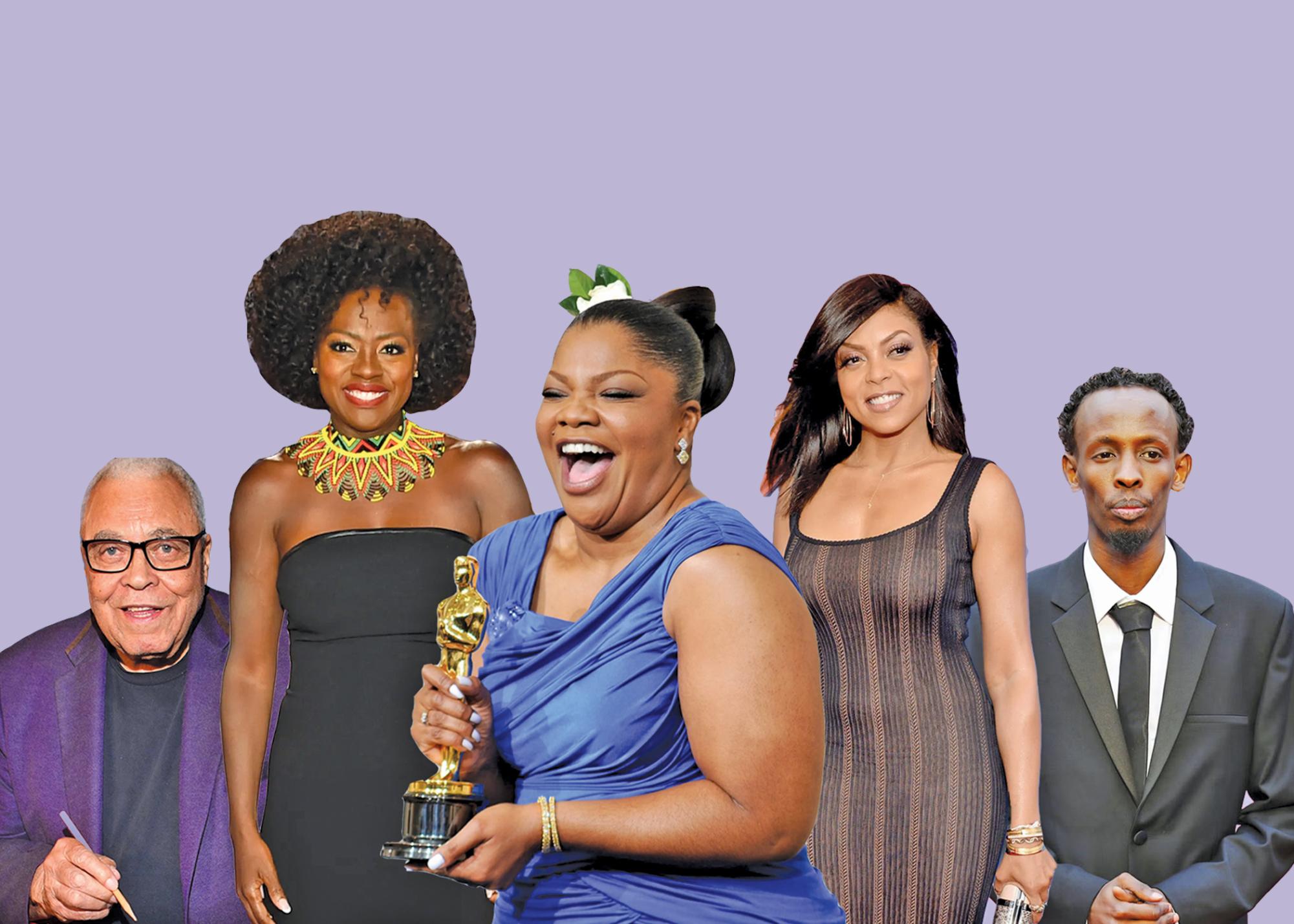Walking into UCLA’s Royce Hall and looking around at his coworkers, it became apparent to technical theatre professional and now teacher Ron Greene that he was one of the only two Black people there.
He tried not to let it stop him. It was more important to him that he concentrate on the work. Although he tried to focus, he knew that his white co-workers were given better opportunities than him, including higher pay.
With suppressed voices in writing rooms and a lack of representation in the media dating back to a century of racism, Black actors have combated unequal pay rates for as long as the film industry has existed.
Today, people of color in the stage and film industry, even big-name actors such as Viola Davis, Angela Bassett and Taraji P. Henson, are only paid one-third as much as white actors and technicians.
We never hear about big-name white actors leaving roles because of pay. We only hear about actors of color turning down roles or leaving the film industry altogether because it’s not enough to pay the bills.
It’s not due to a lack of job opportunities. There are hundreds of TV shows and movies being produced every single day. It’s simply because white actors are paid more and given more opportunities.
The movie industry is notorious for paying people of color less than their white counterparts. Inequality stemming from racism is deeply rooted in the entertainment industry.
From the early to mid-1900s, Black actors were excluded from roles that often portrayed them in racist stereotypical ways. But the abolition of segregation in the 1960s opened up new possibilities for Black actors. As the 1900s transitioned into the new millennium, more and more Black actors and cultures were inserted into mainstream film.
But Hollywood still has a long way to go. Black-led films and television shows are continuously underfunded, and for a majority of actors, this is where racial disparity starts: on set. Underfunded projects are setting up Black actors for failure, and in an industry where white people dominate, one shot at making it big could be your only chance.
In 2018, Chadwick Boseman starred in Marvel’s Black Panther. He was paid $2 million for his starring role. Robert Downey Jr. and Chris Evans made over $20 million for their roles.
Hollywood directors are notorious for whitewashing films and TV. An actor could have the same amount of experience, talent and training, but because they are white they’ll get the role over an actor of color. Directors know that historically, white leads respond better to audiences. According to the Hollywood Diversity Report of 2020, three out of every ten leads are actors of color.
Xavier Martin-Porter is an aspiring actor and performing arts student. While participating in the school’s theatre productions, he also performs at Act-1 Theater Company and is a Tonality Choir Program Scholar. He explains that it’s upsetting to watch white actors get roles that Black actors were never given the chance for.
“It can be very disappointing as an African American actor who loves to be a part of theatre and film,” he said. “It’s very discouraging to see roles frequently given to white actors just because they’re white.”
Child actor Dilan Patton realized that he would have to work extra hard to make it in this industry. He’s willing to do whatever it takes to make sure that he has a fair shot at becoming a successful actor.
“If working more will somewhat lead to equity then it’s worth it,” Patton said.
The history of racial unequal pay stems back to the nineteenth century, towards the end of emancipation. According to the Federal Reserve Bank of Minneapolis, the wealth gap between white and Black Americans was 23 to one in the late 1870s.
Since then, the racial wealth gap has narrowed down to around six to one. While the racial pay gap has significantly lessened in the past hundred years, it is still prominent.
Greene, who has worked in the industry for upwards of 20 years, believes the pay gap and racial disparity that it stems from is lessening due to an increase in workers.
“The pay gap has improved,” he said. “Mainly due to the fact that there are more people of color working in the industry, helping each other achieve their goals.”
As time continues on, it becomes vital that actors of color are rewarded for their hard work.
Back in 2016, a Variety report showed the average pay rate of lead actors in popular television shows at the time, and showed that white actors made 62.5 percent more than Black actors.
Now, rising Black actors have a hard time becoming well-known. It’s difficult enough to get cast as an actor, but it’s even harder to get cast as a person of color and to have a steady enough salary to stay in the business.
“I think it’s extremely unfair for white actors to be paid more than their counterparts,” Martin-Porter said. “We are equally talented and deserve to be paid exactly the same.”
No matter how many awards or accolades a Black actor receives, it’s not enough to make up for unequal pay.
Black actors are often excluded from the privilege of being offered lead roles. Instead, they are often cast as the stereotypical “Black best friend” or the “angry Black woman.”
White domination of the film industry stems beyond the performance side of the film. Screenwriters and other film technicians of color are additionally hired and paid less. In 2022 alone, 22.6% of screenwriters were men and women of color. The other 77.4% were white.
Racial disparity in the writers room is the beginning of racial disparity on the screen. The longer white writers dominate the writers room, the longer our
In a 2019 Color of Change Hollywood report, over 90% of showrunners are white, two-thirds of shows had no Black writers and another 17% of shows had just one Black writer.
Greene states that people of color are at a disadvantage in the film industry because they don’t have the same connections as their white counterparts.
“White actors and technicians tend to get jobs more because they may have relatives who help them get entry-level jobs that later become full-time jobs,” he said.
The racial disparity in the entertainment industry will not stop the change that is being made. If anything, it encourages Black actors to challenge the issue. The more the racial pay gap is discussed in mainstream media, the more attention the problem gets and the more the pay gap closes.
Black Student Union Club Co-President Djeada Hall, who hopes to be successful in the film industry one day, believes that no matter the treatment she receives because of her race, she will not stop working hard for what she loves.
“It makes me want to work harder as an actor because I’m not gonna stop doing what I love, even if people will underappreciate me due to my skin color,” she said.
The abridged version of this article appeared in the Spring 2024 print edition. This is an uncut version.





Jim v • Mar 14, 2025 at 1:25 pm
Who was Chadwick before blank panther?
Karen • Jan 23, 2025 at 8:49 pm
For centuries
black people have been Robbed not only as actors but as inventors as a people in general . And I’ve always believed as I’ve learned things over the years. That white people are basically scared of a race of people who have never done anything to them. And who are as smart and as intelligent as creative, if not more creative then they are. That’s why they stole from Black’s our resourcefulness was unmatched because our ancestors were smart and learned how to survive regardless of their treatment.
We may be considered the meek in this world. And we all know that the meek shall inheret the Earth. So you people go ahead and keep taking all the money and mistreating people of
color. You have always been Intimidated by us. And your strength comes from your fear.
And and you’re stealing.
Because the money you can’t take with you. And when the time comes you know who will be on top. God sees it all.